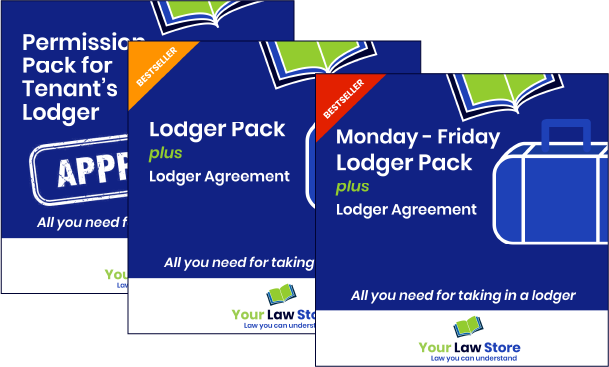Have you got permission to take in a lodger?
Before you start clearing out the spare room and buying new furniture, you need to be sure that you are legally entitled to let it out to your lodger, and have any necessary permission. Otherwise, you could be in trouble.
These are the main points to consider:
If you are a tenant:
If you rent a property under a short let, such as an assured shorthold tenancy, your tenancy agreement will almost certainly forbid taking in a lodger. Or it will just prohibit ‘subletting’ which is the same thing.
You will, therefore, need to get your landlord’s permission.
In most situations, landlords will be unwilling to grant permission as
- Their mortgage will forbid subletting to lodgers
- It may invalidate their insurance, and
- It could turn the property into an HMO (House in Multiple Occupation) – which will require them to apply for an HMO license and in most cases carry out expensive renovations required by the Council as a condition of granting the license.
We discuss HMOs later in this Guide.
Your Law Store
If your landlord agrees to allow you take in lodgers, note that we have a permission form which your landlord can use for this. Find out more about this here.
If you live in Social Housing:
If you rent from a housing association or local authority, you shouldn’t have any problem so long as you only let to one lodger.
However, there is no harm in having a word with one of the housing officers and asking for written confirmation. Keep it safe.
If you are told you don’t need written permission, keep a note of the name of the person you spoke to and the date.
If you want to have more than one lodger, you will probably need to get permission first. Have a word with your local housing officer.
If you are an owner-occupier
Normally, if you are an owner-occupier, you should be all right.
However, if you have a long lease or a mortgage, these will almost certainly forbid any subletting, so you need to make sure that no tenancy is created. Or in Wales that no occupation contract is created. (This will also be the case with private and social short lets also). We discuss here how an English tenancy can be prevented.
Your lease may also probibit lodgers, but this is less likely.
Depending on the terms of your mortgage deed, it may be advisable to notify your mortgage company that you are taking in a lodger. We have a letter you can use for this in the letters section of Your Law Store.
The two other things that perhaps could be mentioned here are planning permission and the building regulations:
- Planning permission will probably only be needed if you are thinking of renting out rooms as a business, (although watch out for possible changes in the law relating to planning permission for HMOs).
- Building regulations will only apply if you are thinking of having building work done, perhaps to create a new bedroom or bathroom. You will find some information about building regulations here.
Note that insurance is dealt with in the Financials section.
Readers Questions
Q: We live in a leasehold flat and want to rent out our spare room to a lodger. How can we tell whether this is allowed or not?
A: The best way to check is to read your lease and see what it says. However if you don’t have access to a copy of your lease, maybe have a word with your freeholder or management company. If you can get them to confirm in writing that you can rent a room to a lodger you should be fine.
Important note
This guide ONLY deals with lodger agreements where you are renting a room to a lodger in your own home.
If you require information about tenancies with resident landlords and Welsh occupation contracts, you need the Landlord Law site.
